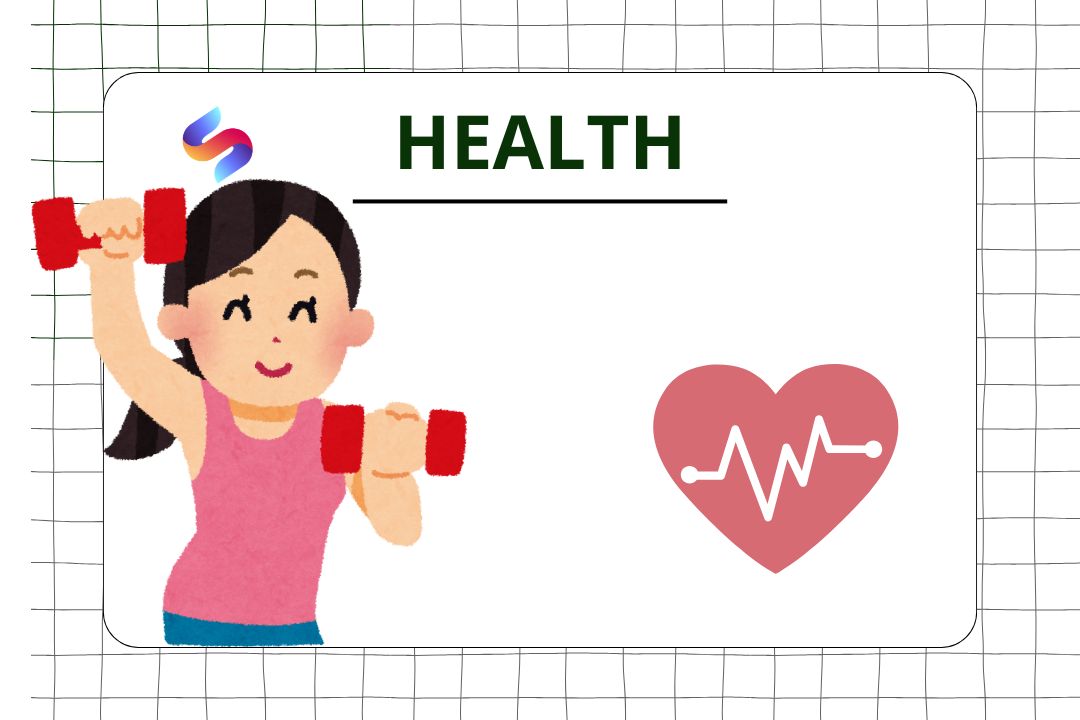Đội ngũ chuyên gia tại Smartcom English là tập hợp những chuyên gia đầu ngành trong lĩnh vực IELTS nói riêng và tiếng Anh nói chung. Với phương pháp giảng dạy sáng tạo, kết hợp với công nghệ AI, chúng tôi mang đến những trải nghiệm học tập độc đáo và hiệu quả. Mục tiêu lớn nhất của Smartcom Team là xây dựng một thế hệ trẻ tự tin, làm chủ ngôn ngữ và sẵn sàng vươn ra thế giới.
tham gia nhóm hỗ trọ
Khi nói đến sức khỏe, cả thể chất và tinh thần đều là những yếu tố cần thiết để có một cuộc sống cân bằng và viên mãn. Ngày nay, mọi người ngày càng nhận thức rõ về tầm quan trọng của việc duy trì sức khỏe tốt, nhưng câu hỏi đặt ra là làm thế nào để đạt được điều này một cách bền vững. Chúng ta hãy cùng thảo luận về các cách tiếp cận khác nhau để cải thiện sức khỏe và vai trò của các cá nhân cũng như các nền tảng trong quá trình này.
Trong phần thi IELTS Speaking Part 3, việc trả lời các câu hỏi liên quan đến sức khỏe không chỉ yêu cầu kiến thức mà còn cần sự phân tích sâu sắc về các vấn đề liên quan. Người tham gia cần chứng minh khả năng sử dụng từ vựng phong phú và cách diễn đạt linh hoạt để thể hiện ý kiến cá nhân.

Khi nói về cách cải thiện sức khỏe thể chất, bạn có thể nhấn mạnh tầm quan trọng của việc tham gia các hoạt động thể dục và duy trì chế độ ăn uống cân bằng. Bên cạnh đó, cũng nên đề cập đến các yếu tố như căng thẳng và ngủ đủ giấc, vì chúng có ảnh hưởng lớn đến sức khỏe tổng thể.
Ngoài ra, có thể thảo luận về vai trò của các tổ chức và cá nhân trong việc nâng cao nhận thức về sức khỏe. Cuối cùng, hãy nhớ rằng, để đạt được điểm số cao trong IELTS Speaking, việc sử dụng từ vựng chính xác và phong phú, cùng với việc phát triển câu trả lời một cách logic và sâu sắc là rất quan trọng. Sau đây cùng học một số câu trả lời cho các câu hỏi sau nhé!
Lưu ý để đạt điểm IELTS Speaking tối đa:
- Sử dụng các từ vựng học thuật chính xác và phong phú.
- Triển khai câu trả lời theo hướng phức tạp, đa chiều.
- Kết hợp các cấu trúc câu đa dạng như câu phức và câu ghép.
- Paraphrase lại câu hỏi để thể hiện kỹ năng ngôn ngữ linh hoạt.
How can people improve their physical health?
Improving physical health requires a multifaceted approach, with the cornerstone being regular physical activity. Engaging in aerobic exercises, such as running or swimming, enhances cardiovascular health, while strength training builds muscle mass and improves metabolic function. Furthermore, maintaining a balanced diet rich in essential nutrients—like vitamins, minerals, and protein—is crucial for bodily function. Finally, incorporating proper hydration, adequate rest, and avoiding harmful habits such as smoking or excessive alcohol consumption contributes to a healthier lifestyle.
Từ vựng hữu ích:
Multifaceted approach: /ˌmʌltiˈfæsɪtɪd – əˈprəʊʧ/ – phương pháp đa chiều
Cardiovascular health: /ˌkɑːdiəʊˈvæskjʊlə – hɛlθ/ – sức khỏe tim mạch
Strength training: /strɛŋθ -ˈtreɪnɪŋ/ – rèn luyện sức mạnh
Metabolic function: /ˌmɛtəˈbɒlɪk -ˈfʌŋkʃən/ – chức năng trao đổi chất
Hydration: /haɪˈdreɪʃən/ – việc cung cấp đủ nước
Harmful habits: /ˈhɑːmfʊl -ˈhæbɪts/ – thói quen có hại
What about their mental health?
Mental health improvement is equally complex, involving both personal practices and external support. Engaging in mindfulness techniques such as meditation, which promotes self-awareness, can reduce anxiety and depression. Additionally, fostering social connections and maintaining supportive relationships provide emotional stability. Equally important is balancing work and leisure, as prolonged stress without adequate downtime can deteriorate mental health. Seeking professional help when necessary, such as therapy, ensures that individuals receive targeted treatment for more severe mental health conditions.

Từ vựng hữu ích:
Mindfulness techniques: /ˈmaɪndfʊlnəs – tɛkˈniːks/ – kỹ thuật chánh niệm
Self-awareness: /ˌsɛlfəˈwɛənəs/ – nhận thức về bản thân
Emotional stability: /ɪˈməʊʃənəl – stəˈbɪlɪti/ – sự ổn định cảm xúc
Downtime: /ˈdaʊn.taɪm/ – thời gian nghỉ ngơi
Deteriorate: /dɪˈtɪəriəreɪt/ – làm xấu đi
Professional help: /prəˈfɛʃənl – hɛlp/ – sự giúp đỡ chuyên môn
In what ways can teachers encourage students to do sports?
Teachers can foster a sports culture by integrating physical education into the curriculum in a way that emphasizes enjoyment over competition. Offering a variety of sports allows students to find activities that suit their interests and physical abilities, thus encouraging participation. Moreover, introducing incentives such as awards or recognition for consistent participation can create a positive association with physical activity. Creating an inclusive environment where all students, regardless of skill level, feel encouraged to participate is key to long-term engagement in sports.
Từ vựng hữu ích:
Foster a sports culture: /ˈfɒstər – ə – spɔːrts -ˈkʌltʃər/ – thúc đẩy văn hóa thể thao
Emphasize enjoyment over competition: /ˈɛm.fə.saɪz – ɪnˈdʒɔɪmənt -ˈoʊ.vər -ˌkɒmpəˈtɪʃən/ – nhấn mạnh niềm vui hơn là cạnh tranh
Inclusive environment: /ɪnˈkluːsɪv – ɪnˈvaɪrənmənt/ – môi trường bao dung
Consistent participation: /kənˈsɪstənt – pɑːrˌtɪsɪˈpeɪʃən/ – tham gia đều đặn
Positive association: /ˈpɒzɪtɪv – əˌsəʊ.siˈeɪ.ʃən/ – liên tưởng tích cực
What is the role of doctors in raising health awareness?
Doctors are pivotal in promoting health awareness as they serve as trusted sources of medical advice. By conducting regular health check-ups, doctors can educate patients on preventive measures, such as vaccinations or lifestyle changes that reduce the risk of chronic diseases. Furthermore, through public health campaigns and educational seminars, healthcare professionals can reach broader audiences, imparting knowledge on pressing health issues such as obesity, smoking, and cardiovascular disease. Their role in public health extends beyond treatment to encompass education and prevention.

Từ vựng hữu ích:
Pivotal: /ˈpɪvətl/ – then chốt
Preventive measures: /prɪˈvɛntɪv -ˈmɛʒərz/ – biện pháp phòng ngừa
Chronic diseases: /ˈkrɒnɪk – dɪˈziːzɪz/ – bệnh mãn tính
Public health campaigns: /ˈpʌblɪk – hɛlθ – kæmˈpeɪnz/ – chiến dịch sức khỏe cộng đồng
Healthcare professionals: /ˈhɛlθkeə – prəˈfɛʃənlz/ – chuyên gia y tế
Encompass: /ɪnˈkʌmpəs/ – bao gồm
Can social media also play a role?
Social media is increasingly becoming a powerful tool in raising health awareness. Health professionals and organizations utilize these platforms to disseminate accurate health information quickly to a global audience. Moreover, interactive features such as live Q&A sessions, fitness challenges, and informational videos foster engagement and encourage the public to adopt healthier lifestyles. However, the spread of misinformation poses a significant challenge, making it crucial for users to rely on credible sources when seeking health advice online.
Từ vựng hữu ích:
Disseminate: /dɪˈsɛmɪneɪt/ – phổ biến
Global audience: /ˈɡloʊbəl -ˈɔːdiəns/ – khán giả toàn cầu
Interactive features: /ˌɪntəˈræktɪv -ˈfiːtʃəz/ – tính năng tương tác
Misinformation: /ˌmɪsɪnˈfɔːrmeɪʃən/ – thông tin sai lệch
Credible sources: /ˈkrɛdɪbl -ˈsɔːrsɪz/ – nguồn đáng tin cậy
Why do you think some people continue bad habits when they know that they are damaging to their health?
I believe people continue bad habits despite knowing the risks for a few reasons. First, habits like smoking or overeating are often addictive, making them hard to quit. For example, nicotine creates a strong dependency. Second, stress or lack of motivation can stop people from changing, as they prioritize short-term pleasure over long-term health. Finally, some may not know about healthier alternatives, like swapping junk food for nutritious meals, so they stick to old routines.
Từ vựng hữu ích
Stick to /stɪk tuː/: Gắn bó, tiếp tục làm gì đó (thường là thói quen).
Addictive /əˈdɪk.tɪv/: Gây nghiện, khiến người ta khó bỏ.
Dependency /dɪˈpen.dən.si/: Sự phụ thuộc, lệ thuộc vào thứ gì đó.
Motivation /ˌməʊ.tɪˈveɪ.ʃən/: Động lực, lý do để làm điều gì đó.
Nutritious /njuːˈtrɪʃ.əs/: Giàu dinh dưỡng, tốt cho sức khỏe.
Do you think people have become more health-conscious in recent years?
Yes, I think people are more health-conscious nowadays. Many focus on their diet, choosing organic food or cutting down on sugar. Social media plays a big role, with influencers promoting exercise and healthy recipes. Also, greater awareness of health issues like obesity encourages people to stay active. However, some still prefer convenience foods, but the overall trend is toward healthier lifestyles.
Từ vựng hữu ích
Health-conscious /ˈhelθ ˈkɒn.ʃəs/: Ý thức về sức khỏe, quan tâm đến sức khỏe.
Promoting /prəˈməʊ.tɪŋ/: Thúc đẩy, khuyến khích.
On board /ɒn bɔːd/: Đồng ý, tham gia vào việc gì đó.
Do you think healthcare should be free?
In my opinion, healthcare should be free because it’s a basic human need, not a luxury. Free healthcare ensures everyone can access treatment, promoting fairness. For instance, countries like the UK have systems where people don’t face huge medical bills. However, funding free healthcare requires high taxes, so governments must plan carefully to make it sustainable.
Từ vựng hữu ích
Basic human need/ˈbeɪ.sɪk ˈhjuː.mən niːd/: Nhu cầu cơ bản của con người.
Sustainable/səˈsteɪ.nə.bəl/: Bền vững, có thể duy trì lâu dài.
What makes a good doctor?
A good doctor needs both expertise and personal qualities. They must have strong medical knowledge to diagnose and treat accurately. Empathy is also vital—they should listen and show care to build trust. Being approachable and patient, especially with nervous patients, is key. Finally, as medical science is always evolving, a good doctor keeps learning to provide the best care.
Từ vựng hữu ích
Empathy/ˈem.pə.θi/: Sự đồng cảm, thấu hiểu cảm xúc của người khác.
Approachable /əˈprəʊ.tʃə.bəl/: Dễ gần, thân thiện.
Evolving /ɪˈvɒlv.ɪŋ/: Tiến hóa, phát triển dần theo thời gian.
Xem thêm: IELTS Speaking part 3 topic Old People (người lớn tuổi)
Các bạn vừa khám phá một số câu hỏi thường gặp trong bài thi IELTS Speaking part 3 topic Health . Hy vọng các bạn đã có cho mình những kiến thức cần thiết để có thể xử lý chủ đề Health khi gặp trong phòng thi. Chúc các bạn thi tốt!
Đừng để câu hỏi “nên học IELTS ở đâu” và “chi phí học IELTS bao nhiêu” cản trở bạn! Smartcom English sẵn sàng đồng hành cùng bạn với lộ trình tối ưu và chi phí siêu hợp lý. Đăng ký ngay!

Kết nối với mình qua


![[PDF + Audio] Tải Sách IELTS Cambridge 19 (Kèm đáp án)](https://smartcom.vn/blog/wp-content/uploads/2024/06/ielts-cambridge-19_optimized.png)


![[PDF + Audio] Tải Sách IELTS Cambridge 17 (Kèm đáp án)](https://smartcom.vn/blog/wp-content/uploads/2024/07/sach-ielts-cambridge-17_optimized.jpg)

![[PDF + Audio] Tải Sách IELTS Cambridge 15 (Kèm đáp án)](https://smartcom.vn/blog/wp-content/uploads/2024/07/ielts-cambridge-15_optimized.jpg)








